Are you ready to supercharge your productivity with AI?
In 2025, AI workflow automation tools are reshaping how businesses operate, offering unprecedented efficiency and accuracy. Here’s a curated list of the top 10 tools leading this transformation.
1. UiPath
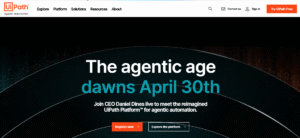 Overview:
Overview:
UiPath stands out as a leader in robotic process automation (RPA), enabling businesses to automate repetitive tasks with ease.
Key Features:
-
User-friendly interface
-
Robust AI integration
-
Extensive community support
Use Case:
Ideal for automating data entry, invoice processing, and customer service tasks.
2. Microsoft Copilot Studio
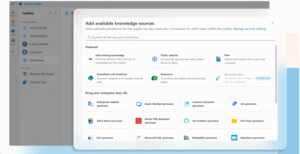 Overview:
Overview:
Microsoft Copilot Studio introduces ‘computer use’ capabilities, allowing AI agents to interact directly with applications, simulating human actions.
Key Features:
-
Seamless integration with Microsoft 365
-
Natural language processing
-
Adaptive learning for UI changes
Use Case:
Perfect for automating tasks across Microsoft’s ecosystem, enhancing productivity.
3. Zapier
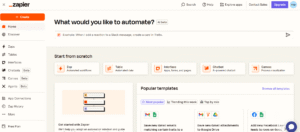 Overview:
Overview:
Zapier connects over 3,000 apps, automating workflows without the need for coding.
Key Features:
-
Extensive app integrations
-
Conditional logic paths
-
User-friendly setup
Use Case:
Automating marketing campaigns, lead management, and social media posting.
4. Automation Anywhere
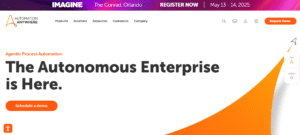
Overview:
Automation Anywhere offers cloud-native RPA solutions, integrating AI to automate complex business processes.
Key Features:
-
Intelligent document processing
-
Bot store with pre-built solutions
-
Scalable architecture
Use Case:
Streamlining HR onboarding, finance operations, and IT services.
5. Notion AI
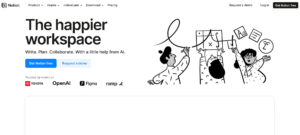 Overview:
Overview:
Notion AI enhances the popular workspace tool by automating content creation and organization.
Key Features:
-
AI-powered writing assistance
-
Task summarization
-
Seamless integration with Notion databases
Use Case:
Creating meeting notes, drafting documents, and organizing project tasks.
6. ClickUp
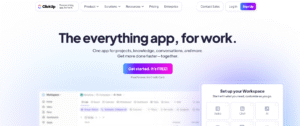 Overview:
Overview:
ClickUp integrates AI to optimize project management, offering intelligent suggestions and automation.
Key Features:
-
Smart task prioritization
-
Automated reminders
-
Goal tracking with AI insights
Use Case:
Managing complex projects, assigning tasks, and tracking progress efficiently.
7. Make (formerly Integromat)
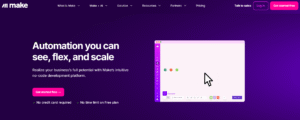 Overview:
Overview:
Make offers advanced automation capabilities, allowing users to build complex workflows with a visual interface.
Key Features:
-
Real-time data processing
-
Extensive app integrations
-
Customizable scenarios
Use Case:
Automating data synchronization, notifications, and multi-step processes.
8. Tactiq
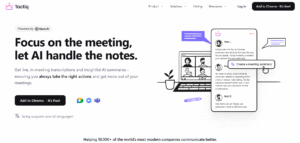 Overview:
Overview:
Tactiq captures and transcribes meeting conversations, integrating AI to summarize and highlight key points.
Key Features:
-
Real-time transcription
-
Action item extraction
-
Integration with video conferencing tools
Use Case:
Enhancing meeting productivity by providing instant summaries and follow-ups.
9. ChatGPT
 Overview:
Overview:
ChatGPT, developed by OpenAI, offers conversational AI capabilities, assisting in drafting content, coding, and more.
Key Features:
-
Natural language understanding
-
Contextual responses
-
Integration with various platforms
Use Case:
Automating customer support, content creation, and coding assistance.
10. Anthropic Claude
 Overview:
Overview:
Claude by Anthropic is an AI assistant designed for safety and usability, offering reliable automation solutions.
Key Features:
-
Ethical AI design
-
Context-aware responses
-
Integration with business tools
Use Case:
Automating research, drafting documents, and providing insights with a focus on safety.
Outbound Link:
For a comprehensive list of AI automation tools, visit IoT World Magazine’s Top 50 AI Automation Tools.




